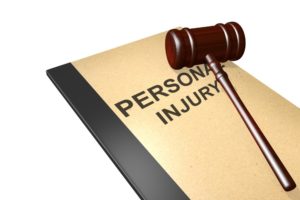What Is Pain And Suffering In A Personal Injury Case~2 min read
 Dealing with a personal injury is tough. The damage can go on for years beyond the accident. In that case, you should seek compensation to ease the burden of your injuries. That’s why it’s important to know what you’re entitled to. Having an understanding of pain and suffering in a personal injury case can help you receive the settlement you deserve. Contact the experienced personal injury attorneys at Springer & Lyle to answer questions you might have regarding your case.
Dealing with a personal injury is tough. The damage can go on for years beyond the accident. In that case, you should seek compensation to ease the burden of your injuries. That’s why it’s important to know what you’re entitled to. Having an understanding of pain and suffering in a personal injury case can help you receive the settlement you deserve. Contact the experienced personal injury attorneys at Springer & Lyle to answer questions you might have regarding your case.
If you have an accident, the damages can go beyond your property, lost wages and injuries. You could encounter physical and emotional distress. The severity of the injuries may require time off work and unexpected out-of-pocket expenses. This all takes a toll on the mind and body. That’s why physical pain and mental anguish can both be recovered in an appropriate case.
Physical vs. Mental Pain and Suffering
Physical pain and suffering is an intangible element of damage. You can’t put a pencil to it. It is an element of damage that allows one to recover for the physical pain experienced by the person caused from their injuries. There can be a recovery for pain in the past and pain likely to be incurred in the future. An experienced attorney knows how to explain and present this element of damage to a judge or a jury.
Mental pain and anguish is another intangible element of damage. This includes the emotional harm and torment that resulted from the physical injuries. How the injury affects a person’s hobbies and quality of life, depression, anxiety, sleep deprivation and mood changes are all examples of mental pain and suffering. The loss of a loved one in a claim for wrongful death would be another example. Mental anguish damages can be divided into past and future damages like physical pain and suffering.
For Instance…
A victim of a car accident may have physical injuries that require surgery and therapy which are painful. This person may also have mental anguish as a result of the accident. They may have bad dreams, anxiety or fear of driving. Changes to their physical appearance or not being able to do activities as before may cause depression.






